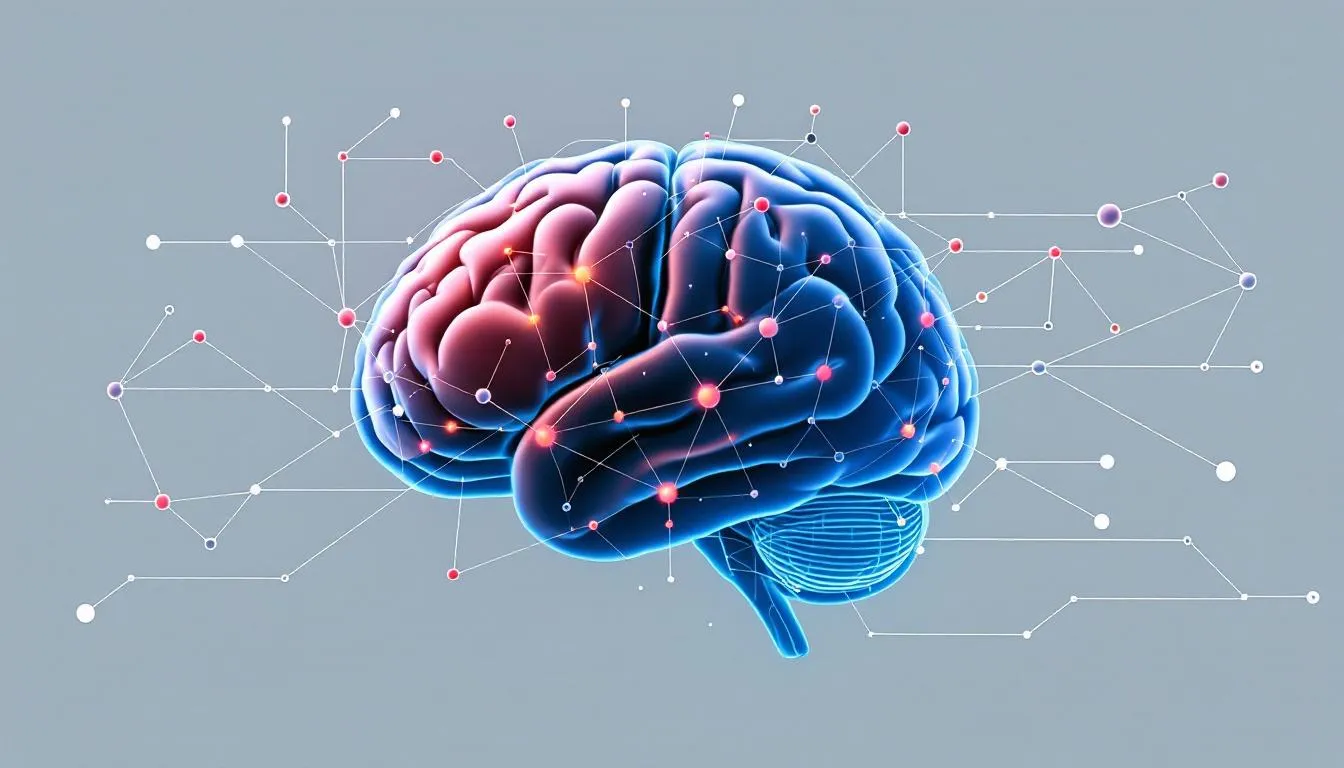Top Supplements for Digital Nomads to Stay Focused and Energized

Want to stay focused and energized? Learn about the best supplements and habits that can help digital nomads and professionals achieve peak cognitive performance.
Key Takeaways
-
NAD+ is essential for cognitive function, energy metabolism, and neuronal health; its levels can be optimized through dietary supplements.
-
Establishing daily habits, including mindfulness practices and monitored sleep, helps improve focus and productivity for digital nomads.
-
Regular exercise and a balanced diet rich in omega-3s and antioxidants support cognitive health and longevity.
The Science Behind Focus

To optimize brain function, it’s important to understand the science behind focus. At the heart of cellular bioenergetics and cognitive function lies NAD+ (nicotinamide adenine dinucleotide), a molecule central to several cellular pathways. NAD+ plays a crucial role in maintaining neuronal circuits and energy metabolism, ensuring that our brain cells function efficiently. Augmenting NAD+ levels, including nicotinamide mononucleotide, can restore mitochondrial function and enhance neuronal survival, which directly benefits cognitive function and increased nad.
Mitochondria, the powerhouses of our cells, are vital for sustaining brain energy levels, especially during periods of stress. These tiny organelles support energy metabolism and help maintain the high energy demands of the brain. Environmental factors, such as stress and lifestyle choices, can significantly influence brain structure and function, affecting cognitive abilities and focus, particularly when it comes to mitochondrial quality, damaged mitochondria, and cell metab.
Calcium ions also play a pivotal role in regulating neuronal function and structural adaptations in neuronal networks. These ions contribute to cognitive health by supporting communication between neurons and promoting plasticity. Optimal NAD+ levels are crucial since their depletion is linked to the hallmarks of brain aging. This underscores the importance of NAD+ for cognitive longevity and healthy brain function.
While much of our understanding comes from mouse models and rodent models, further research is necessary to fully comprehend the complexities of NAD+ and its impact on human brain health and gene expression. Nonetheless, the current evidence highlights the potential benefits of maintaining NAD+ levels through dietary supplements and lifestyle interventions, including the use of animal models.
Daily Habits for Improved Focus
Establishing daily habits that support cognitive function is vital for maintaining focus and productivity. Creating a structured routine at the start of the day is one of the most effective ways to boost productivity. This not only helps in organizing tasks but also sets a positive tone for the rest of the day.
Mindfulness practices are another powerful tool for enhancing focus. These practices significantly reduce stress levels and anxiety, helping individuals recover more quickly from stress and build resilience. For digital nomads, who often face unpredictable schedules and environments, incorporating mindfulness meditation can be a game-changer.
Monitoring sleep quality is also crucial for overall health and longevity. Devices like the Oura Ring can provide valuable insights into sleep patterns, allowing individuals to make informed adjustments to improve their rest. Quality sleep is directly linked to healthy brain function and cognitive performance.
Regular breaks throughout the day help maintain productivity. Short breaks allow individuals to recharge and return to tasks with renewed focus. Moreover, certain habits can be rapidly absorbed into daily routines, making it easier to sustain long-term improvements in focus and energy.
Nutritional Support for Cognitive Function
Dietary supplements significantly support cognitive function and overall brain health. Key points include:
-
Omega-3 fatty acids, commonly found in a fish oil supplement, including docosahexaenoic acid, are linked to better memory and cognitive performance.
-
Consistent omega-3 supplementation may help prevent cognitive deterioration.
-
Omega-3s may reduce the risk of dementia.
Vitamin D can improve mood and cognitive function, especially in older adults with reduced sun exposure. Additionally, age related vitamins B6, B9 (folate), and B12 are vital for maintaining cognitive health, especially in older individuals.
Antioxidants like vitamins A, vitamin C, and vitamin E protect brain cells from oxidative stress and free radicals. These vitamins help combat systemic inflammation and support neuronal function, contributing to healthy ageing and cognitive longevity.
A balanced diet, such as a Mediterranean-style diet, is linked to better brain health and improved focus. This diet emphasizes:
-
Whole grains
-
Fruits
-
Vegetables
-
Healthy fats These provide a rich source of nutrients necessary for optimal brain function.
Specific supplements, like nicotinamide adenine dinucleotide (NAD+), ginkgo biloba, and nicotinamide riboside, have shown potential benefits for cognitive function and neuronal survival. However, the effectiveness of these nutritional supplements can vary, with some studies showing significant benefits while others do not.
The health benefits of a balanced diet and key fiber supplements are immense, supporting cognitive function and overall well-being, including the gut microbiome. These practices support not only cognitive function but also overall well-being and healthy longevity, showcasing their beneficial effects.
Exercise and Brain Health

Exercise is a powerful tool for enhancing cognitive function and combating neurodegenerative conditions like Alzheimer’s disease. Physical activity leads to improvements in attention, memory, and executive function, making it an essential component of a healthy lifestyle.
Engaging in regular physical activity fosters brain plasticity and lowers the risk of cognitive decline and dementia. Exercise positively influences mitochondrial function, which is crucial for preventing neurodegenerative diseases. Oxidative stress can lead to mitochondrial dysfunction, impacting cognitive performance and contributing to psychiatric disorders.
The brain’s high energy demands make it particularly susceptible to metabolic disorders that may affect focus and attention. Regular physical exercise helps maintain brain energy levels and supports overall cognitive health.
Engaging in at least 150 minutes of physical activity per week is recommended for optimal benefits. This can include activities like:
-
walking
-
jogging
-
cycling
-
strength training All of these contribute to enhanced cognitive abilities and attention.
Mindfulness and Stress Reduction Techniques

Mindfulness practices offer numerous benefits for enhancing focus and cognitive clarity, including:
-
Significantly improving attention and reducing stress by training the brain to concentrate on the present.
-
Enhancing self-control and emotional intelligence, contributing to better focus and cognitive performance.
-
Allowing individuals to disengage from negative thought patterns, reducing instances of rumination and promoting cognitive flexibility.
Chronic stress can trigger mitochondrial changes that lead to cognitive impairments and emotional dysregulation. Practicing mindfulness improves stress resistance and maintains better cognitive health.
Single-tasking exercises, such as focused reading, can also help strengthen the ability to maintain attention. Engaging in mindfulness meditation has been shown to improve working memory and attention capacity, further supporting cognitive clarity and focus.
Tracking Progress and Setting Goals
Tracking goals and progress enhances normal cognitive function and productivity. Consistent effort and monitoring of achievements contribute significantly to healthy longevity and improved cognitive performance.
Using tools and apps for tracking focused sessions can be a valuable aid in maintaining goal-oriented productivity. These tools can help individuals stay on track and make necessary adjustments to their routines.
Clear and achievable goals are key to maintaining productivity and focus, as they play a key role in ensuring success. By regularly assessing progress, individuals can stay motivated and ensure they are on the right path to achieving their objectives.
How NMN and the NAD+ Brain Blend Can Help
When your office is a café in Lisbon one week and a coworking hub in Bali the next, mental clarity isn’t optional — it’s essential. Constant travel, changing time zones, and inconsistent sleep can all drain your cellular energy fast. That’s where NMN and our NAD+ Brain Blend come in.
NMN (nicotinamide mononucleotide) is a powerful precursor to NAD+, a molecule that fuels your brain’s mitochondria — the engines behind focus, memory, and mental stamina. As NAD+ levels decline with stress and aging, NMN helps replenish them, supporting sharper thinking and steady energy without the crash.
For deeper cognitive support, our NAD+ Brain Blend combines NMN with 12 clinically studied ingredients including Citicoline, L-Tyrosine, Green Tea Extract, and Phosphatidylserine. This unique formula works synergistically to:
-
Support attention and recall
-
Enhance calm focus under stress
-
Protect brain cells from oxidative damage
-
Promote mental clarity and mood balance
Whether you’re on back-to-back Zoom calls or navigating a foreign city on 4 hours of sleep, this stack is designed to keep your mind clear, your mood stable, and your productivity high — no matter where in the world you’re working from.
Community Support and Expert Guidance
Engaging with a supportive community offers several benefits:
-
Provides a sense of belonging and motivation.
-
Fosters accountability, encouraging individuals to stay committed to their goals.
-
Reduces feelings of isolation and increases overall well-being.
-
Allows sharing of experiences and challenges, which can boost morale and provide valuable insights.
Expert guidance helps navigate challenges and achieve personal goals. Access to tailored strategies and advice can enhance the effectiveness of productivity techniques and support cognitive function.
Avoiding Common Pitfalls

Distractions can significantly disrupt productivity, making it challenging to regain focus. On average, it takes over 23 minutes to refocus after an interruption. A cluttered workspace can serve as a visual distraction, hindering concentration. Creating a dedicated workspace can significantly reduce distractions and improve focus.
A ‘no interruption’ policy among colleagues fosters a work environment focused on productivity. This policy helps minimize disruptions and supports sustained attention.
Time blocking involves scheduling specific periods for tasks, minimizing distractions, and enhancing focus. Additionally, using website blockers can help limit access to distracting social media during work hours.
Summary
Summarize the key points discussed in the blog post, emphasizing the importance of a holistic approach to maintaining focus and energy. Recap the benefits of supplements, daily habits, exercise, mindfulness, and community support for cognitive health.
Highlight the overall message of taking proactive steps to support brain health and achieve peak performance. Encourage readers to apply the tips and techniques discussed in their daily lives.
End with an inspiring statement, motivating readers to prioritize their cognitive health and embrace a balanced, healthy lifestyle.
Frequently Asked Questions
What is NAD+ and why is it important for brain health?
NAD+ is essential for brain health as it plays a vital role in cellular energy production, supporting mitochondrial function and neuronal survival. This ensures optimal cognitive performance and overall brain function.
How can daily habits improve focus?
Establishing daily habits such as structured routines and mindfulness practices can greatly enhance your focus by improving brain function and minimizing stress. Prioritizing sleep quality also plays a crucial role in maintaining concentration.
What are the best dietary supplements for cognitive function?
To enhance cognitive function, consider incorporating omega-3 fatty acids, vitamins D, B6, B9, B12, and antioxidants like vitamins A, C, and E into your diet. These supplements are widely recognized for their positive effects on brain health.
How does exercise benefit brain health?
Exercise significantly enhances brain health by improving attention, memory, and cognitive functions while also promoting brain plasticity and reducing the risk of cognitive decline. Incorporating regular physical activity into your routine can foster long-term mental well-being.
What techniques can help reduce stress and improve focus?
Incorporating mindfulness practices, such as meditation and single-tasking, can significantly reduce stress and enhance your focus. These techniques promote cognitive clarity and emotional intelligence, leading to improved productivity.






Leave a comment